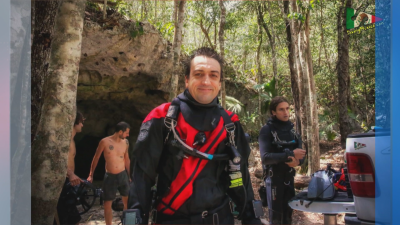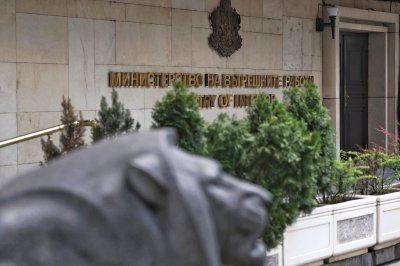The Black Sea is warming faster than almost any other sea on the planet, largely because it is an almost enclosed body of water. The process is driven by climate change, and the rising water temperature is threatening to permanently disrupt the ecosystem — with potentially fatal consequences for some of its more vulnerable marine species.
What are the effects of more intense algal blooms? Is oxygen decreasing in the upper water layers? And what can people do to help improve the state of the Black Sea? Reporter Petar Doikinski explores these questions in “The Climate: The Hot Truth”.
Diver and instructor Darina Ivanova has spent 40 years exploring the Black Sea, reaching depths of up to 60 metres. She has noticed that the warming waters are reducing populations of characteristic marine species.
“Some of them are harder to spot now — small bottom-dwelling creatures such as crabs, snails, worms. We’re also seeing fewer gobies. It’s linked to higher water temperatures that are no longer suitable for their survival. The fish are seeking cooler waters, especially those that live near the seabed. At the same time, new invasive species are coming from the Mediterranean — unusual fish for our sea, and even the appearance of the blue crab,” she explains.
The species most at risk are cold-water fish such as sprat, horse mackerel and turbot.
“This could lead to a sharp decline in their populations. Some of them are also commercially important,” says Assoc. Prof. Nina Dzhembekova, a researcher at the Institute of Oceanology at the Bulgarian Academy of Sciences (BAS).
“Fish that can move are able to seek new habitats that meet their natural needs, but slow-moving or stationary species are the most vulnerable,” adds Dr Ivelina Zlateva from the same institute.
Climate change is also contributing to more frequent and intense algal blooms in the Black Sea — a process that allows warm-water species from the Mediterranean to thrive as they enter through the Bosphorus.
“Some of these may be toxic microalgae or species that disrupt the natural marine balance,” warns Dzhembekova.
Pollution and rising temperatures encourage the growth of phytoplankton, which causes “seafloor colouring” and creates areas with low oxygen levels.
“Bottom-dwelling organisms are especially susceptible to these changes. The situation is even more worrying with toxic microalgae, since some species produce powerful toxins,” Dzhembekova notes.
The same processes have also led to the beautiful natural phenomenon of bioluminescence — when the water glows blue-green at night. This so-called “sea of stars” effect is caused by microscopic plankton known as Noctiluca scintillans, which appear as tiny bubbles under a microscope.
“It’s the result of a chemical reaction between the enzyme luciferase and the molecule luciferin, which emits light in the presence of oxygen. When the water is disturbed, this reaction produces the glowing effect,” explains Assoc. Prof. Kremena Stefanova from BAS.
Darina Ivanova is among those who have witnessed the spectacle underwater:
“It’s incredibly emotional — to be surrounded by light. If you move quickly, you leave a glowing trail behind you. Seeing an entire group shining as it moves feels almost surreal.”
For years, scientists have been studying the depths of the Black Sea using special probes deployed from research vessels at depths of 750 to 1,000 metres. After about ten days, the probes resurface and transmit their data via satellite.
“They measure fluorescence and chlorophyll — the latter being a proxy for phytoplankton biomass — as well as organic matter, oxygen and hydrogen sulphide,” explains engineer Violeta Slabakova from BAS.
Researchers say protected marine zones should be established in the Black Sea to safeguard its biodiversity. In these reserves, scientists plan to restore seagrass meadows and allow only activities that help the marine ecosystem recover from the pressures of climate change and pollution.
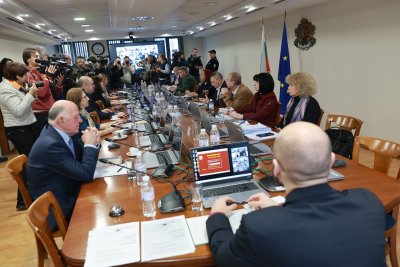
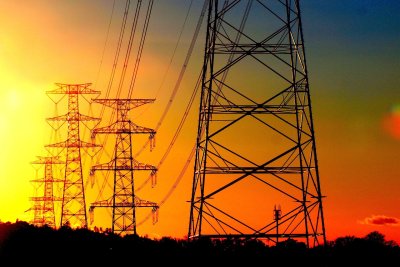
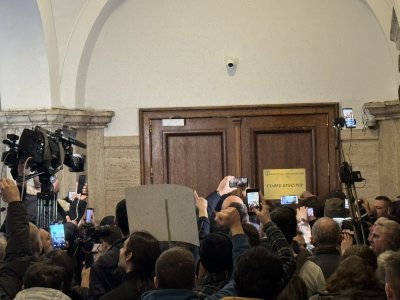








 Чуй новините
Чуй новините Подкаст
Подкаст








